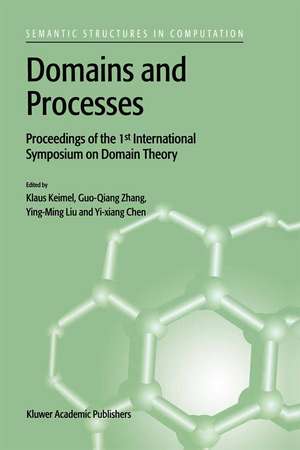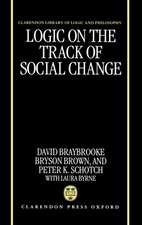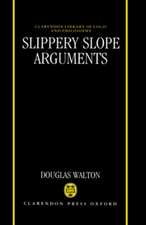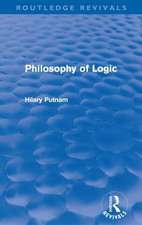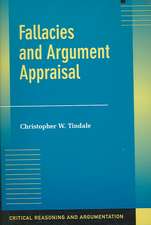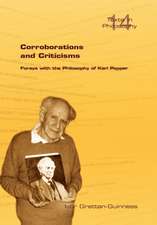Domains and Processes: Proceedings of the 1st International Symposium on Domain Theory Shanghai, China, October 1999: Semantics Structures in Computation, cartea 1
Editat de Klaus Keimel, Guo-Qiang Zhang, Ying Ming Liu, Yixiang Chenen Limba Engleză Paperback – 17 sep 2012
This book is a valuable reference for researchers and students interested in this rapidly developing area of theoretical computer science.
| Toate formatele și edițiile | Preț | Express |
|---|---|---|
| Paperback (1) | 629.45 lei 6-8 săpt. | |
| SPRINGER NETHERLANDS – 17 sep 2012 | 629.45 lei 6-8 săpt. | |
| Hardback (1) | 635.55 lei 6-8 săpt. | |
| SPRINGER NETHERLANDS – 31 oct 2001 | 635.55 lei 6-8 săpt. |
Preț: 629.45 lei
Preț vechi: 740.53 lei
-15% Nou
Puncte Express: 944
Preț estimativ în valută:
120.46€ • 125.50$ • 100.16£
120.46€ • 125.50$ • 100.16£
Carte tipărită la comandă
Livrare economică 08-22 februarie 25
Preluare comenzi: 021 569.72.76
Specificații
ISBN-13: 9789401038591
ISBN-10: 9401038597
Pagini: 292
Ilustrații: XIV, 273 p.
Dimensiuni: 160 x 240 x 15 mm
Greutate: 0.41 kg
Ediția:Softcover reprint of the original 1st ed. 2001
Editura: SPRINGER NETHERLANDS
Colecția Springer
Seria Semantics Structures in Computation
Locul publicării:Dordrecht, Netherlands
ISBN-10: 9401038597
Pagini: 292
Ilustrații: XIV, 273 p.
Dimensiuni: 160 x 240 x 15 mm
Greutate: 0.41 kg
Ediția:Softcover reprint of the original 1st ed. 2001
Editura: SPRINGER NETHERLANDS
Colecția Springer
Seria Semantics Structures in Computation
Locul publicării:Dordrecht, Netherlands
Public țintă
ResearchCuprins
1 Encounters Between Topology and Domain Theory.- 1 Introduction.- 2 Introductory Domain Theory.- 3 The Scott Topology.- 4 Locally Compact Spaces.- 5 Spectral Theory.- 6 Round Ideal Completions.- 7 Ordered Spaces.- 8 Compact Pospaces.- 9 Spaces of Maximal Points.- 10 The Domain of Closed Formal Balls.- 11 Fixed Point Theory.- 12 The Probabilistic Power Domain.- 13 Open Problems and Research Directions.- 14 Topological Appendix.- 2 The Lawson Topology on Quasicontinuous Domains.- 1 Introduction.- 2 Quasicontiuous domains.- 3 Strictly complete regularity of the Lawson topology.- 3 Uk-admitting dcpos need not be sober.- 1 Introduction.- 2 Uk-admitting for locally compact dcpo’s.- 3 Uk-admitting does not always imply sober.- 4 The Largest Topologically Cartesian Closed Categories of Domains as Topological Spaces.- 1 Introduction and Preliminaries.- 2 Relations between tcc and ccc categories.- 3 FS is the largest tcc full subcategory of CONT1.- 4 F-FS is the largest tcc full subcategory of CONT.- 5 On the Equivalence of Some Approaches to Computability on the Real Line.- 1 Introduction.- 2 The TTE approach to real number computations.- 3 The domain-theoretic approach to real number computability.- 4 The language Real PCF.- 5 The equivalence results.- 6 Concluding remarks.- 7 Appendix.- 6 The continuous functionals of finite types over the reals.- 1 Introduction.- 2 The types.- 3 The hereditarily total objects.- 4 Density and co-density.- 5 Limit spaces.- 6 The traditional approach.- 7 Compact Semantics on Bc-domains.- 1 Introduction.- 2 Preliminaries and Characterizations for Semantics Continuity.- 3 The Compactness Theorem And Applications.- 4 Conclusion.- 8 Normal Subsets in Abstract Bases.- 1 Introduction.- 2 Prerequisites.- 3 Normal subsets and sub-domains.- 4 The dcpoclass of abstract bases and a fixed point theorem.- 9 Semantics of Logic Programs and Representation of Smyth Powerdomain.- 1 Introduction.- 2 Domains and information systems.- 3 Main representation theorem.- 4 Proofs.- 5 Examples.- 6 Semantics of disjunctive logic programs.- 7 Clausal logic over sequent structures.- 8 Conclusion.- 10 Domains of view: a foundation for specification and analysis.- 1 Introduction.- 2 Kripke modal transition systems.- 3 Fuzzy Kripke modal transition systems.- 4 Modal Markov chains.- 5 Modal relations.- 6 Related work.- 11 Semantic Theory and Proof System of Open Bisimulation for the ?-Calculus with Mismatching.- 1 Introduction.- 2 Operational Semantics of the ?-Calculus.- 3 Open Bisimulation and Its Symbolic Characterization.- 4 Proof System for Open Bisimulation.- 5 The Weak Case.- 6 Conclusions.- 12 Axiomatization without Prefix Combinator.- 1 Introduction.- 2 Preliminaries.- 3 Polyadic X-Calculus.- 4 A Process Calculus without Precedence.- 5 Ground Bisimilarity for Atomic X-Calculus.- 6 Axiomatization in the Absence of Prefix, Summation and Match Combinators.- 7 Final Remarks.
